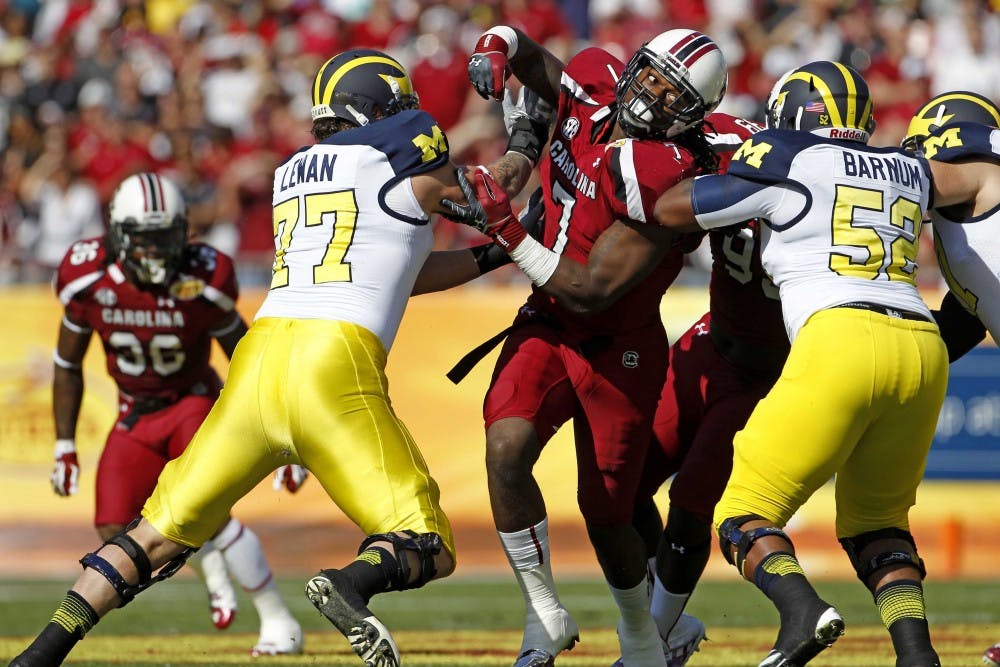The SEC Network's "Takeover" series is meant to increase interest in and excitement for college sports by allowing each school to highlight their athletic accomplishments. However, by blocking access to most postseason games in each sport, the NCAA is handcuffing schools in their ability to achieve this goal.
For Carolina, that means we can't showcase last year's women's basketball Final Four run. Those hoping to see our back-to-back baseball championships (2010 and 2011) will be similarly out of luck. The silver lining of our lack of recent appearances in the postseason is that all of the football games under Spurrier are available (the 2013 Outback Bowl, featuring "the Hit" by Jadeveon Clowney, will air at 5:30). Thanks to the diversity of Carolina's athletic success, we'll still be able to put together a terrific program, even if it is lacking some of the moments we most want to see.
Other SEC schools who are predominantly known for a single sport (Kentucky's men's basketball or Tennessee's women's basketball, for example) will have a much tougher time. While we recognize that the NCAA has the rights to these postseason games, we question their decision not to release them for "Takeover" use. The NCAA is a designed to promote college sports and the students who play them — why would they not want the games most likely to do exactly that to be shown?
Even if ESPN (which owns the SEC network) was unwilling to shell out the cash for these programs, NCAA should have allowed them to run for free. Restricting access to the most exciting games doesn't just hurt the SEC network, it also hurts the schools who participate in NCAA sports, the students who compete in the events and the fans who support both the schools and the players.
In our opinion: NCAA wrong to block playoffs

South Carolina defensive end Jadeveon Clowney (7) is double-teamed as he rushes the Michigan quarterback in the Outback Bowl at Raymond James Stadium in Tampa, Florida, on Tuesday, January 1, 2013. (Gerry Melendez/The State/MCT)
